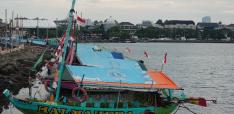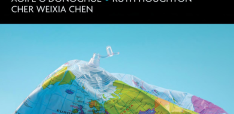Iran is changing, maybe (a little) - yet the EU's policy for sure should
Last Friday, Iranians did what no one expected them to do: They flocked to the polling stations in great numbers and elected the ‚moderate’ candidate, Hassan Rouhani, as the country’s next President. Winning 50,7 % of the votes in the first round, he left all his more hardline competitors behind by a wide margin. When the results were announced the next day, people took to the streets celebrating. Still, some confusion persisted: How could this happen? Why didn’t the regime try to fix the results? Or is it all a pre-cooked deal in which the only mullah among the six candidates remains victorious?
Whatever the reasoning, the expectations of a new President Rouhani are enormous: He should heal the rifts within the Iranian society as much as save the economy from floundering, and all the while improve Iran’s ties with the rest of the world by striking a different tone in the nuclear negotiations. How much room for manoeuvre he really has with the all-powerful Supreme Leader, Ali Khamenei, will become clear rather sooner than later.
For the EU, this change of guard nonetheless presents an opportunity to better prepare, both policy-wise and institutionally, for a set of scenarios that go beyond the status quo. Because a closer look at its Iran policy reveals that it has only been good at what it has done so far – leading the international nuclear negotiations and increasing the sanctions pressure together with the US – but is not prepared for any sudden changes.
There is no plan B (as in a Breakdown of the negotiations followed by a unilateral military attack against Iran) or plan C (as in Change within Iran, which could just as well result in a military autocracy instead of Islamic semi-democracy), not to mention a plan D (as in Deterrence, which would be necessary should Iran, contrary to its claims and despite international efforts, eventually acquire a bomb).
As outlined in a paper for the European Policy Centre, a more comprehensive EU policy towards Iran should contain the following basic elements.
First of all, safeguarding and strengthening the non-proliferation system is of utmost importance. While rightfully insisting on the full implementation of the revelant international rulings, the EU should be open to framing the dispute as a broader non-proliferation problem. After all, it is for the sake of regional stability and the credibility of the international system that Iran must not get a bomb, not because its leadership regularly threatens Israel. This means maintaining current levels of inspections by the International Atomic Energy Agency in Iran while making a concerted effort to get all parties of the Non-Proliferation Treaty to sign the Additional Protocol. It also includes to unequivocally support UN efforts to establish a ‚nuclear weapons-free Middle East’.
In addition, the promotion of democracy and human rights is central to the EU’s foreign policy identity, yet it is too often disregarded in its actual policies. The EU should step up its outreach to the wider population by focusing on the rule of law, press freedom or labour rights, where Iran violates its own domestic laws or UN treaties. The EU should provide relevant basic information and up-to-date official statements through a Farsi-language website, whereas foundations or the upcoming European Endowment for Democracy could do the groundwork with local officials or politicians.
Iran’s geographical location also necessitates a broader approach. From engaging Iran in the stabilisation of Afghanistan and tackling cross-border drug traffic to acknowledging Tehran's role in neighbouring Iraq and, yes, involving it to solve the conflict in Syria, the EU should work with the US to end the exclusion of Iran from international conflict resolution.
Such an extension of the EU’s policy approach requires time, and its ultimate success also depends on Europe’s partners. Meanwhile, there are some things the EU should do to enhance its institutional organisation within the European External Action Service (EEAS).
Mainly, the EEAS should set up an Iran task force, bringing together the different desks currently dealing (or not) with the country, including those in the Directorate-General for Trade. Its natural head, for the time being, is the deputy secretary-general currently in charge of the negotiations. She could also make sure that she has sufficient people on her team to implement this broader policy approach.
In Iran, the EU needs to establish a presence on the ground, given the lack of an official delegation in Tehran. Most urgently, it should support the rotating presidency’s work by sending an EEAS official to one of the member states’ embassies there. While demarches and similar activities would still be conducted via the presidency’s ambassador, this official would provide the expertise and continuity necessary to effectively coordinate member states on the ground as well as send reports to Brussels.
Finally, with a view to Iran’s Internet-savvy population, the EU should also invest more in its web presence. Setting up a ‚virtual embassy’ as the US has done would be one step. It should explain EU policies on Iran and the region and provide general information regarding living and working in Europe, with links to the respective visa pages on national embassy websites.
Given its prominence and hitherto relative success, the EU should strive to make its Iran policy a showcase of how a well-organised EEAS can benefit member states and Europe’s partners alike. The measures outlined above would allow the EEAS to tackle this file in a more comprehensive way, while being prepared to revise its strategy should events on the ground – for better or worse – so require.
Image Credit: Touristmaker


